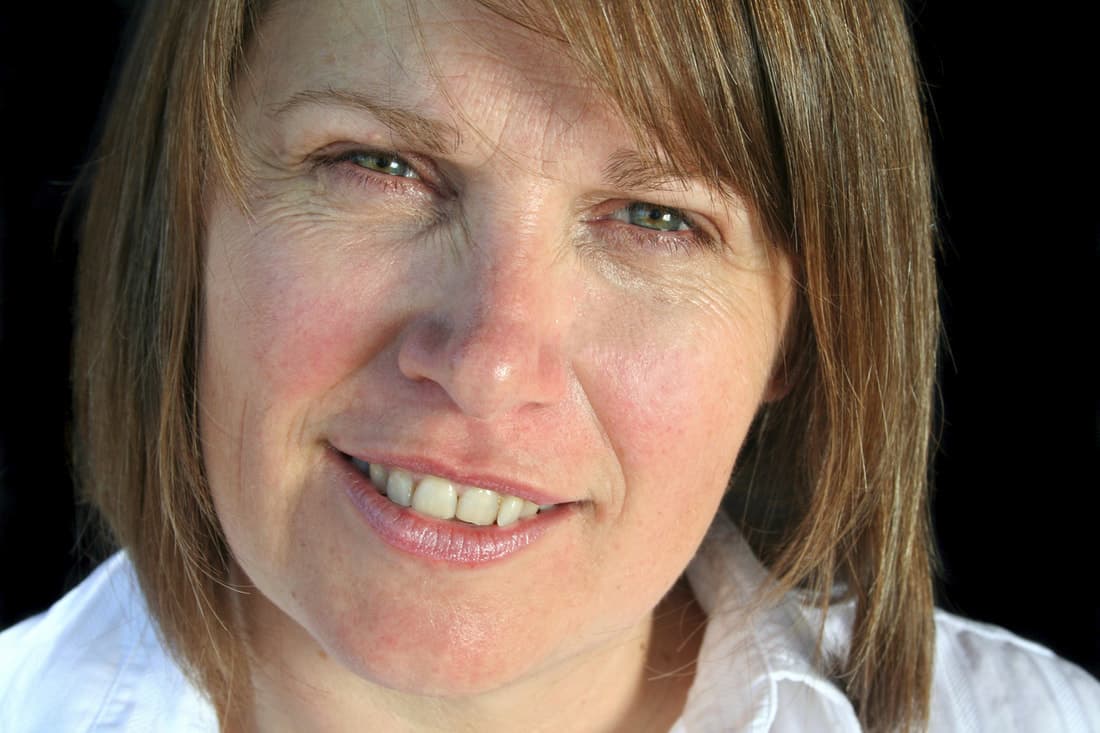I used to be a blusher. When I spoke, when I liked a boy, or when I made a mistake—I turned red. My blushing reached its peak as a teen and resurfaced during menopause, when frequent hot flushes sometimes collided with embarrassing situations. After menopause? It stopped completely. I can’t tell you whether there’s a physiological explanation or whether I just grew more comfortable in my own skin. Either way, I’m grateful—I can’t remember the last time I blushed.
I’ve always known blushing can intensify public speaking anxiety. But recently I discovered that a fear of blushing has its own name: erythrophobia. Two of my clients have shared that they struggle with this, which got me interested in finding out more.
Blushing is one of the most frustrating things about speaking anxiety. It’s visible -unlike your pounding heart! You can learn to slow your pace, steady your breathing, manage your notes, and even hide shaky hands. But you can’t hide the sudden rush of colour to your face. Your audience can see it—and that makes people dread it even more.
In this article, I’ll explore why we blush, whether people really judge us for it, and what you can do if you blush while speaking. Spoiler alert: the less attention you give it, the more likely it is to take care of itself.
Why do we blush?
Blushing is a physiological response—often to anxiety or embarrassment—triggered by the sympathetic nervous system. When under stress, your body releases adrenaline, which dilates the blood vessels under your skin. The blood vessels in your cheeks are wider and closer to the surface than in other parts of your body. As blood rushes to your face and neck, you turn red.
It’s also self-perpetuating: noticing you’re blushing makes you blush more. Worrying that you might blush can even bring it on. Telling someone that they are blushing even if they are not, can bring it on!
Does blushing always mean embarrassment?
Not always. People blush for many reasons: heat, excitement, and even after a glass of wine. Sometimes, a simple compliment can bring on a glow.
I ran a corporate course recently where one participant told us she loved public speaking and never got nervous. When it was her turn, she spoke with confidence and clarity—but went bright red. I was not going to draw attention to it, but another participant pointed it out: “Isn’t it funny you don’t get nervous, but you still blush?” She laughed and said, “I know! It’s annoying, but I sometimes blush when I get excited.”
It was a great reminder for the group: even confident speakers can blush.
What does your audience really think?
Yes, your audience may notice you blushing. But if you speak well, they’re far less likely to care than you imagine. They won’t judge you negatively—if anything, they’ll admire your courage in carrying on. Because blushing is so common, they are also unlikely to remember – I have seen many people blush but I would struggle to name them.
I once worked with a senior leader who had a pronounced stutter. Everyone noticed it. But it never held him back—he was respected, effective, and valued for what he had to say.
And here’s the good news: research suggests blushing can even work in your favour. A BBC article explains that because you can’t fake or control it, blushing signals honesty and sincerity. People may actually trust and like blushers more.
But what if you’ve been teased?
Both of my clients with erythrophobia had been teased about blushing at school. They’d hear “You’re blushing!”—as if they didn’t already know. That kind of unkindness can set up a lifelong fear that others will judge you the same way.
But adults are far more likely to empathise than criticise. Many know exactly what it’s like to blush themselves.
What can you do about blushing?
Understandably, many blushers try to avoid situations where they might go red—or they try to cover it up. I once had a woman arrive at a workshop with a thick scarf wrapped around her neck, just to hide the blushing.
Avoidance might help in the short term, but it won’t reduce your fear of blushing in the long run. If your anxiety about blushing is severe, you could join a support group or seek professional counselling. This Facebook group could be a great place to start.
Many people find they can self-manage by doing the following:
- Practice in safe spaces. Speak as often as you can in environments where people are supportive. Join a public speaking course or Toastmasters club.
- Reframe your thinking. Blushing is not a weakness—it can actually make you appear more trustworthy and relatable.
- Carry on regardless. While you can’t control the colour in your face, you can control your delivery. Look people in the eye, focus on your message, and the blushing will often fade as quickly as it arrives.
There’s no instant cure, but the less power you give blushing, the less it will affect you. Over time, many people find it fades naturally—just as it did for me.

